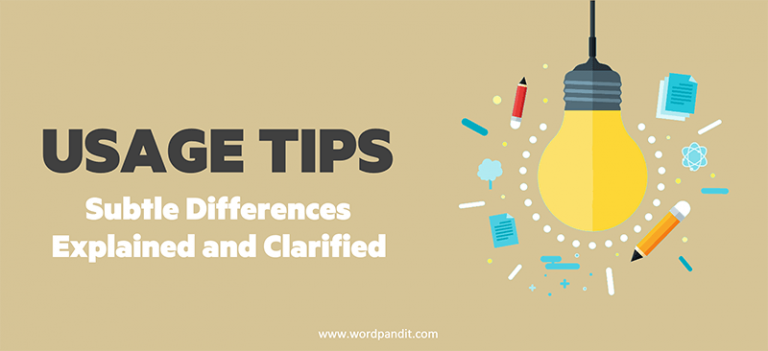Clarifying Confusing Word Pairs: Enervate vs. Innervate ✨📚
Introduction
Have you ever come across the words “enervate” and “innervate” and found yourself scratching your head over which one to use? 🤔 You’re not alone! These two words sound similar but have very different meanings, and mixing them up can lead to some amusing (or confusing) misunderstandings. 😂 Let’s dive into their differences so you can confidently choose the right one when the need arises. Imagine telling someone that their nerves have been completely drained when you actually meant activated—yikes! 😳 Knowing the difference between these two words can help you avoid awkward situations and ensure your message is clear and accurate. Plus, understanding these terms can add a touch of sophistication to your vocabulary, making your communication more effective. So let’s explore what makes these words so different and how you can use each one correctly. 💡
Detailed Explanation of Each Word
Enervate 🔋⬇️
- Definition: To weaken or drain energy from someone or something.
- Pronunciation: EN-er-vayt 🗣️
- Etymology: From Latin “enervare,” meaning “to weaken by removing the sinews.” 📜 The word has an interesting history, as it originally referred to the physical removal of strength, which evolved into the more general sense of weakening or exhausting energy.
- Usage Examples:
- The intense heat enervated the hikers, leaving them unable to continue the climb. 🥵 The sun beat down mercilessly, sapping their strength and making every step feel like a monumental effort.
- Long meetings tend to enervate me, especially if there’s no coffee involved. ☕😴 Without a caffeine boost, the endless discussions seem to drain all my energy, making it hard to stay focused.
- Synonyms: Weaken, exhaust, debilitate, drain, fatigue
- Antonyms: Strengthen, invigorate, energize, empower 💪⚡
Innervate 💥🔌
- Definition: To supply nerves to a part of the body; to stimulate or energize.
- Pronunciation: IN-er-vayt 🗣️
- Etymology: From Latin “innervare,” meaning “to supply with nerves.” 📜 The term comes from the idea of providing a pathway for nerves, which metaphorically extends to mean energizing or activating something.
- Usage Examples:
- The doctor explained how the nerves innervate the muscles, enabling them to contract. 💉💪 This process is crucial for movement, as the nerves send signals that tell the muscles when to work.
- Proper stretching helps innervate the muscles, preparing them for activity. 🤸♂️⚡ Stretching increases blood flow and stimulates the nerves, ensuring the muscles are ready for exercise and reducing the risk of injury.
- Synonyms: Stimulate, energize, activate, animate, empower
- Antonyms: Deaden, paralyze, weaken, inhibit
Comparison and Contrast
The key difference between “enervate” and “innervate” is in their effect. 🔄 “Enervate” means to weaken or drain energy, while “innervate” is about supplying nerves or energizing. You might think of “enervate” as taking energy away, whereas “innervate” is about providing activation or stimulation. 💡 Remember, if you’re feeling enervated, you need rest; if you’re innervated, you’re ready for action! 🏃♀️💨 It’s easy to confuse these words because of their similar sounds, but focusing on their meanings can help. Think of “enervate” as something negative—taking away your energy—while “innervate” is positive, providing energy or stimulation. This distinction is crucial, especially in medical or physiological contexts, where using the wrong word could lead to misunderstandings about someone’s condition or treatment. 🚑
Contextual Usage
- The exhausting heat enervated the athlete, while a quick pep talk from the coach innervated the team. 🌞🏋️♂️ The sun drained their strength, but the coach’s words gave them the energy they needed to push forward and perform at their best.
- After a long day at work, I felt completely enervated, but a good night’s sleep helped innervate me for the next day. 😴☀️ Rest is essential for recovery, allowing your body and mind to regain the energy needed to face new challenges with enthusiasm.
Mnemonic Devices
- Enervate: Think of “energy evacuate”—enervate means your energy is being drained away. 🚫🔋 Imagine a battery losing its charge; that’s what it feels like to be enervated.
- Innervate: Imagine “inner activate”—innervate is about activating something inside, like nerves or muscles. 🔌💪 Picture plugging in a device to give it power; innervate is like turning on the switch to get things moving.
Related Words
Other confusing word pairs you might find interesting include “Elicit vs. Illicit” and “Eminent vs. Imminent.” 🤓 These word pairs also share similar sounds but have distinctly different meanings. Expanding your knowledge of these commonly confused words can help you communicate more precisely and avoid common pitfalls. “Elicit” means to draw out or bring forth, while “illicit” refers to something illegal or forbidden. “Eminent” describes someone famous or respected, whereas “imminent” means something is about to happen. Learning these distinctions not only improves your vocabulary but also makes your writing and speech more effective. 📖✍️
Conclusion
To wrap it up, “enervate” and “innervate” might sound alike, but they couldn’t be more different in meaning. 🌀 “Enervate” leaves you weak, while “innervate
Test Your Knowledge: Enervate vs. Innervate Quiz
1. The long hike in the sun ___ the group, making them too tired to continue.
2. The physical therapist explained how the nerves ___ the muscle tissue.
3. Innervate means to weaken someone.
4. Which word is a synonym for “Weaken”?
5. The coach’s speech ___ the players, giving them the energy to win.
6. The long hours of work ___ the team, but a short break helped ___ them for the final push.
7. Which word has its origins in Latin meaning “to weaken by removing the sinews”?
8. The word ‘innervate’ can be used to describe making someone tired.
9. The trainer ___ the athlete to continue while making sure not to ___ their energy.













